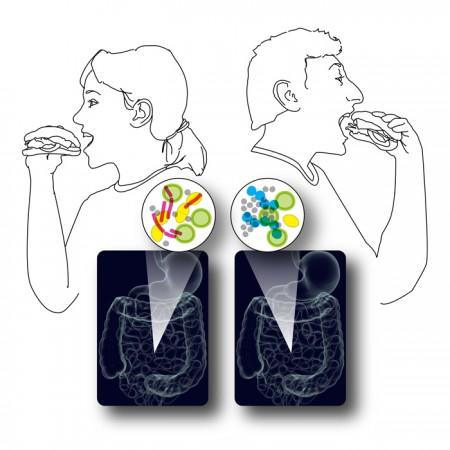
The male and the female gut have different kind of responses to the food that is eaten, according to a team of researchers in the US.
The researchers found that the microscopic bacteria, or other such organism housed inside the human stomach are different in the case of men and women. Hence, they believe that the same diet for both may not have the same effect in them.
The study published in the Nature Communications journal maps out the different microbes that reside in guts of the two sexes of human beings, and finds out how they are different from one another.
"Our study asks not just how diet influences the micro biome, but it splits the hosts into males and females and asks, do males show the same effect as females?" said Daniel Bolnick, lead author for the study, and also a Professor at Austin's College of Natural Sciences, The University of Texas, in a press release.
Hence, the scientists have recommended that while giving advice on diet, the diet experts must also take this factor into consideration. Scientists have only started to realize this phenomenon recently.
They say that there are thousands of micro biomes inside the human gut alone. While a few of these micro biomes are harmful to the body, it is believed that many more of these microscopic creatures act as catalysts to help our bodies function.
The scientists are yet to figure out which micro biomes are good for the body, and which ones are bad. They say that once they figure out the characteristic properties of each of the micro biomes in the human gut, it would be very easy to set the perfect diet for both men and women.
"To guide people's behaviour, we need to know what microbes are desirable for the people. Diet and sex do interact to influence the microbes, but we don't what a desirable target for a microbe is," said Bolnick. "Now we can go in with our eyes open when we work on therapies for gut microbe problems, as many involve dietary changes. We can walk into those studies looking for something we weren't aware of before. All along we treated diet as if it works the same for men and women. Now we'll be approaching studies of therapies in a different way."

















